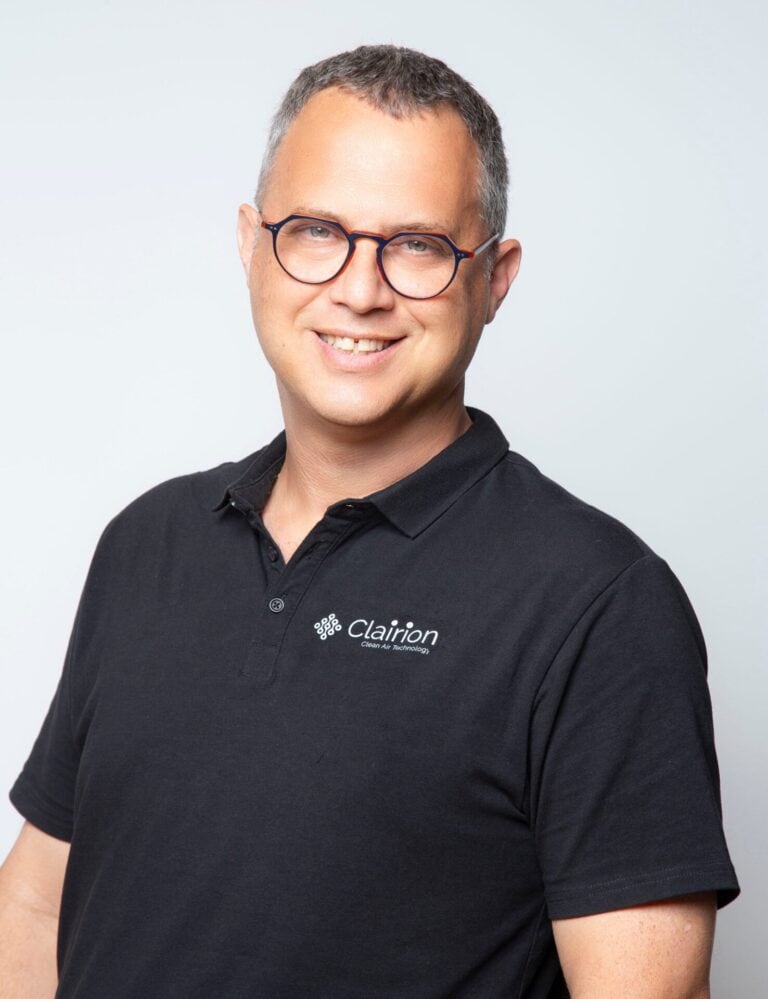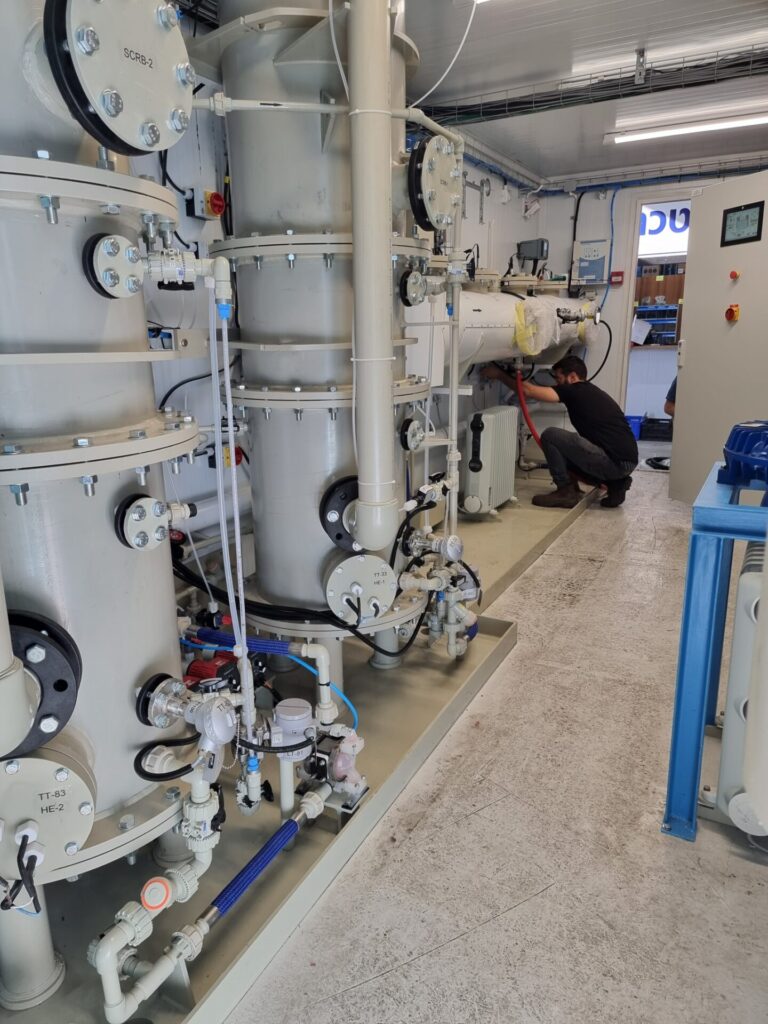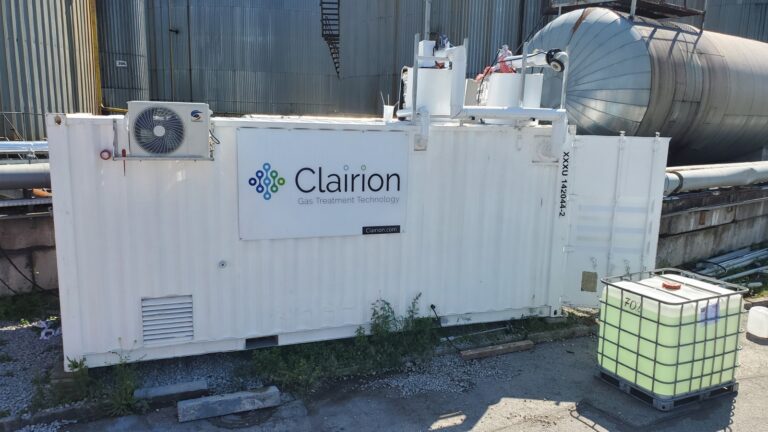New biogas treatment could make it a viable energy source
October 28, 2024
Biogas — produced by the anaerobic decomposition of organic matter such as agricultural waste, municipal waste and food waste – is an important renewable source of energy that burns without smoke.
That gives biogas obvious potential as a green fuel. However, it has not yet lived up to that potential.
One reason is that it isn’t always efficient or economical on a small scale. Another reason is that biogas contains the problematic greenhouse gas methane, as well as many corrosive impurities that are difficult to remove.

Israeli climate-tech company Clairion aims to make biogas a major player in the fast-growing market for renewable energy sources, says Clairion COO Hagay Keller.
Clairion’s Sulkan solution for biogas treatment uses a novel catalytic liquid technology and unique absorption and separation processes, he explains.
“Biogas is produced naturally in many industries and is often flared – burned — because it mainly contains methane. This is a waste,â€� Keller tells ISRAEL21c.
In order to utilize biogas by injecting it into a generator to produce local electricity and heat or sending it to the gas grid, he says, “first you have to clean it of impurities so you don’t damage the infrastructure equipment.�
However, current methods of treating biogas typically take up to 50 percent of energy generation costs, he says.
“This is where we come in, using Sulkan instead of the commonly used technologies based on biological scrubbers or activated carbon, which both come with problems. Our solution is stable and environmentally friendly. It can reduce biogas treatment costs by 50%. Suddenly it makes more sense to purify biogas and utilize it.�
Successful pilot
“Clairion is one of my favorite startups. The Sulkan solution works, and it works well,� says Payam Nissani, CEO of Electra Greentech, a major manager and operator of Israeli wastewater treatment plants where biogas is produced.
Nissani says Electra Greentech is always eager to test creative green solutions to problems and has been piloting Sulkan for about two years at two wastewater treatment facilitiesm partially funded by a grant from the Israel Innovation Authority.

“The biogas needs to be cleaned, and existing solutions are biologic or physical-chemical,� he explains.
“Sulkan’s advantage is that it is far less expensive than the physical-chemical methods and far less complicated than the biologic methods. You don’t have to train the employees to use it or monitor it as you do with biologic solutions, and it offers continuous operation.�
Due to capital already invested in biologic cleaning setups at plants where a lot of biogas is produced with high concentrations of corrosive impurities, Nissani says the company will look at expanding the use of Sulkan in smaller plants where it will be cheaper to install and run.
Two commercial agreements
Following successful results of the Sulkan pilots at the wastewater treatment plants, the Rehovot-based Clairion recently signed its first two commercial agreements.
The first agreement, with a customer in Estonia, is for a full-scale commercial system at Tallinn Port.

Following its successful delivery and operation, Sulkan was chosen by France’s leading natural gas transmission system operator to be tested for biomethane treatment, Keller reports. The pilot will be operational by the end of the year in collaboration with a local partner.
“This is a strategic milestone that may have a dramatic impact on this market and may generate significant commercial opportunities for Clairion in France and the EU,” Keller says.
The second agreement is with Veridis Environment energy services company in Herzliya.Â
Clairion will implement Sulkan at a landfill operated by Veridis to remove harmful siloxanes from biogas produced from the waste, replacing activated carbon currently used for this application.
This treatment will make the biogas ready to inject in generators for local energy production while protecting these generators from possible damage.
The pivot
Clairion started out in 2016 as MercuRemoval, using a novel process for removing toxic mercury from flue-gas streams invented by Hebrew University professors Yoel Sasson and Zach Barnea.
In 2018, the award-winning technology was poised to begin a pilot project with international strategic partners. Then came an anchor investment by Check Point Software Technologies cofounder Marius Nacht, a high-tech pioneer turned venture capitalist.
MercuRemoval, rebranded as Clairion, now had the capital to complete research and validate a broader solution for capturing additional air pollutants common in industrial emissions and transforming them into useful products.
“We discovered our basic tech could do new things,� says Keller.
Throughout 2022, Clairion also invested in developing Sulkan. Driven by global climate challenges and environmental regulations aimed to reduce the use of fossil fuels in many countries, there’s been increased industrial interest in using biogas as a renewable energy source.
“Realizing the potential and the nature of this market and business — shorter sale cycles, a sale of a ‘product’ instead of a ‘project,’ a clear operational and economic need not depending on regulation — this effort was also financially supported by the Israel Innovation Authority and Clairion’s shareholders,â€� says Keller.
“Within 2023, we already defined Sulkan as our major strategic effort and growth engine, achieving an important milestone of commercializing it. This was a pivot, a strategic change for our company.�
Led by CEO Noam Perlmuter, who has a PhD in biochemistry and eco-toxicology, Clairion has about 15 employees and is raising additional funds for market penetration and growth.
For more information, click here.
Search
RECENT PRESS RELEASES
Related Post


